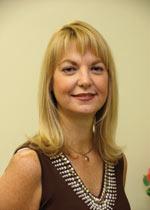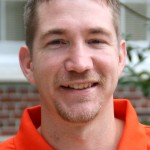While St. Thomas Episcopal Parish School in Coral Gables, Fla., was designing its STEM laboratory three years ago, the University of Florida’s College of Education was expanding its K-12 STEM teacher preparation programs in several Florida school districts. The two institutions now are teaming up to take STEM education at the elementary school level to new heights.
At St. Thomas, STEM has evolved into STEAM–with the addition of art to the four original STEM subjects of science, technology, engineering and math). The concept of teaching STEM subjects through integrated, hands-on, community-based, service-learning projects rather than as stand-alone disciplines has been at the educational forefront for many middle and high school programs in recent years. Developing a comprehensive STEM/STEAM program for the elementary grades, however, is a pioneering adventure that St. Thomas and UF are ambitiously pursuing–full STEAM ahead.
UF faculty consultants from the College of Education’s mathematics and science education programs are now evaluating St. Thomas’s current STEM/STEAM program as a first step of a two-year plan. After completing a thorough inventory of what St. Thomas already has in place in terms of facilities, faculty training, resources and equipment, the UF team will determine the essential ingredients for implementing a school-wide STEM/STEAM education program.
The UF researchers will collaborate with St. Thomas faculty and administrators to set goals, create an integrated curriculum map and provide teachers with STEAM-focused professional development, training and resources. After the STEAM program is launched, St. Thomas will sponsor a STEAM Education Institute to train other interested elementary school educators across Florida.
“Our collaboration with St. Thomas will provide participating students with opportunities to put their STEAM-related knowledge and skills to practical use by addressing real-world science-related problems and issues in their local community,” said Linda Jones, UF associate professor of science and environmental education, who is coordinating UF’s activities in the project. “Collaborative efforts like this benefit everyone involved including students, teachers, parents and the local community. ”
UF’s Tim Jacobbe, UF associate professor of mathematics and statistics education, is working with Jones on the project.
CONTACT:
Linda L. Cronin Jones, Ph.D., UF College of Education: lcjones@coe.ufl.edu; 352-273-4223

